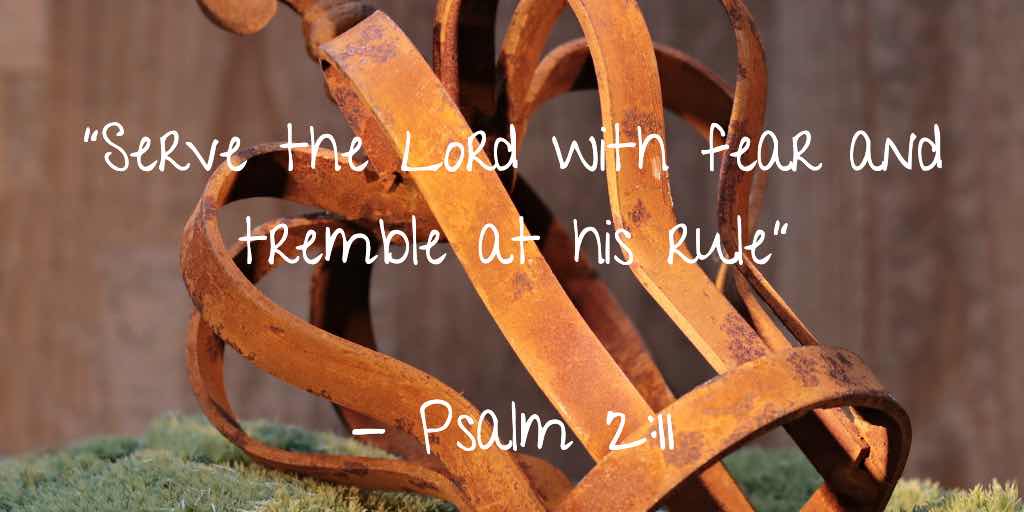Psalm 2

Why do the nations conspire
and the peoples plot in vain?
The kings of the earth rise up
and the rulers band together
against the Lord, and against his anointed, saying,
"Let us break their chains,
and throw off their shackles"
The one enthroned in heaven laughs;
the Lord scoffs at them.
He rebukes them in His anger
and terrifies them in His wrath, saying,
"I have installed my king
on Zion, my holy mountain."
I will proclaim the Lord's decree:
He said to me,
"You are my son,
today I have become your father.
Ask me,
and I will make the nations your inheritance,
the ends of the earth your possession.
You will break them with a rod of iron,
you will dash them to pieces like pottery."
Therefore, you kings, be wise;
be warned, you rulers of the earth.
Serve the Lord with fear
and celebrate his rule with trembling.
Kiss His Son, or he will be angry
and your way will lead to your destruction,
for His wrath can flare up in a moment.
Blessed are all who take refuge in Him.Thoughts on Psalm 2
This Psalm starts off by looking at a rejection of God and his anointed, which
is framed in the context of oppressor and oppressed culminating in these words:
"Let us break their chains, and throw off their shackles".
We don't know the specifics of this oppression, alleged or otherwise, and no
particular group is making this claim - in fact it appears to be the entire
world: "the nations... the peoples... the kings of the earth... the rulers...".
But in assessing this statement, I want to start by looking at what we know
about God's attitude towards oppressor and oppressed.
What does he say? What does he think? How does God act? Over and over again,
throughout the Bible, from beginning to end we read things like this:
https://www.openbible.info/topics/oppression
And now the cry of the Israelites has reached me, and I have seen the way the Egyptians are oppressing them. So now, go. I am sending you to Pharaoh to bring my people the Israelites out of Egypt.
Learn to do right; seek justice. Defend the oppressed. Take up the cause of the fatherless plead the case of the widow.
Whoever oppresses the poor shows contempt for their Maker, but whoever is kind to the needy honours God.
Taking a step back, I want to go back to the beginning, back to the first book
of the Bible. Genesis 2 and 3 tell the story of the creation of mankind and his
fall. And shortly after God made Adam, we read:
The Lord God took the man and put him in the Garden of Eden to work it and take care of it. And the Lord God commanded the man, 'You are free to eat from any tree in the garden; but you must not eat from the tree of the knowledge of good and evil, for when you eat from it you will certainly die.'
There are limits which God has placed on our freedom, and one of those limits is
in the area of morality - right and wrong. God reserves for himself alone the
right to determine this.
But Adam and Eve are persuaded by the snake that God's command is repressive,
that it will stunt their growth, and hinder their destiny, "to be like God".
Now the snake was more crafty than any of the wild animals the Lord God had
made. He said to the woman, 'Did God really say, "You must not eat from any tree
in the garden"?'
The woman said to the snake, 'We may eat fruit from the trees in the garden, but God did say, "You must not eat fruit from the tree that is in the middle of the garden, and you must not touch it, or you will die."' 'You will not certainly die,' the snake said to the woman. 'For God knows that when you eat from it your eyes will be opened, and you will be like God, knowing good and evil.'
Adam and Eve both go on to do as the serpent suggests. The sad thing is that
while what God had said was challenged, and his motive called into question,
what the serpent had said was
never challenged
,
nor his motive questioned
.